Cruelty Free Beauty
- 4 signs you have low iron levels
- Zero Waste Beauty: Adopt a green routine with these sustainable products
- This eco-friendly beauty box is packed with refillable multi-taskers
- “I find myself using it even when I don’t need to!”
- Arctic-inspired natural skincare brand launches in the UK
- Green People launches beauty balm packaged in 100% biodegradable pot
- Lush launches same-day delivery service for its iconic handmade cosmetics
- “This cruelty-free tanning water gave me the confidence boost I needed”
- rho launches sustainable loungewear that gives back
- Rose & Caramel Raises Awareness For Women’s Self-Esteem & Mental Health With ‘I TAN FOR ME’ Campaign
- Couple launches entirely plant-based and refillable deodorant on Kickstarter
- View all
Eco Living
- Simple Hacks to Cut Your Food Waste with Gino D’Acampo
- Five Easy Ways to Reduce Food Waste
- Eat these foods to boost your mood
- Upgrade Your Cheese Toastie
- Have a healthy Christmas with these festive food swaps
- Omega-3 Health Benefits
- 5 minutes with Max La Manna
- A nutritionist’s guide to eating for healthy joints
- Easy ways to achieve your health goals
- Discover the benefits of raisins on a vegetarian diet
- Improve your gut health with California Raisins
- View all
Vegan Recipes
- Quorn Vegan Hot & Spicy Burger with Pink Slaw
- Tomato and Pumpkin Soup
- Pea and elderflower cocktail
- Matcha Coconut Ice Cream
- Vegan Lemon Bars
- Mango Salad with Thai Dressing
- Garden Gimlet
- Tofu & Green Beans Teriyaki
- Cornflakes Bombay
- Rainbow Pickle
- Soba noodles with kale and collards
- View all
Popular recipes
- Spinach and ricotta quiche vegetarian recipe
- Cheats mushroom and spinach lasagne vegetarian recipe
- Lentil bolognese vegetarian recipe
- Creamy mushroom stroganoff vegetarian recipe
- Malaysian Rendang curry vegetarian recipe
- Feta, Butternut Squash, Caramelised Onion and Cashew Nut Wellingtons
News
- Love Food Give Food campaign calls on UK foodies
- Lush launches same-day delivery service for its iconic handmade cosmetics
- Adidas announces plans to eliminate plastic for good
- Barry M partners with wildlife charity for exclusive new collection
- Oddbox is delivering its fruit and veg boxes again
- Tropic launches environmentally friendly sunscreen range
- Nature lovers needed to help The Wildlife Trust restore 30% of nature by 2030
- Pukka is using your tea purchases to plant trees
- Pure Heavenly launches vegan chocolate bars and advent calendars
- VegFestUK goes virtual for 2020
- Charity provides free meals to children and families with surplus food
- View all
Beat your reliance on carbs
If starchy foods are dominating your diet, here’s how to find a healthy balance
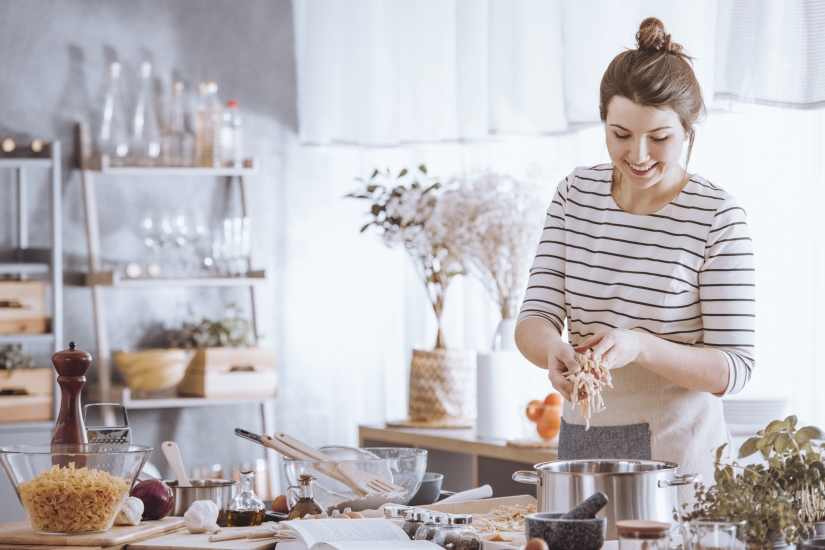
Carbohydrates are a hot topic in the nutritional world. We’ve lost track of the number of fad diets and health articles that tell us not to eat them – and it’s led to the food group getting quite a bad rap. For those of us on a plant-based diet, we often find ourselves relying heavily on carbs to feel full, bulk out a meal, or sometimes simply because we don’t know how else to balance our plate. So, how can you beat your over-reliance on carbs, and should you be avoiding them altogether?
We spoke to registered nutritionist and UKHCA health coach Anna Cummings (annacummings.co.uk) to find out: “Just as fats have been demonised over the years, it seems carbohydrates are experiencing their turn! Carbs are not ‘bad’, however, quality is important. In the Western diet, some of us tend to rely a little too much on them for the majority of our intake, and it’s out of balance with the rest of our plate.”
That said, carbs are our body’s preferred source of fuel. It’s important, however, to note the different types of carbohydrates and the effects they have on the body, according to Dr Marilyn Glenville, one of the UK’s leading nutritionists and a best-selling author: “Refined carbs – foods like sugar, white bread, and glucose added to sports drinks – hit your bloodstream quickly, causing a spike in blood sugar. This results in higher levels of insulin, which tells your body to store fat. Unrefined carbs, on the other hand, give you greater, longer-lasting energy and stable blood sugar; examples are brown rice, oats, wholemeal bread, barley, and rye.”
So, if you find yourself consuming too many carbs with each meal, how can you create more balance? Anna says, “To avoid that ‘carb coma’ feeling, ensure that you have enough protein-based food on your plate, along with a source of healthy fats, plenty of non-starchy vegetables, and just a bit of good-quality whole food carbs, such as brown rice, quinoa, and spelt pasta. Choosing a couple of different sources of protein can be a good call when you’re living the plant-based life, too, as this will increase the range of amino acids (the mini building blocks that make up protein) that you’re eating.”
A good rule of thumb, Dr Marilyn says, is to have at least half of the plate filled with non-starchy, low-carb veggies – this will help fill you up while also providing a range of vitamins, minerals, phytonutrients, and fibre. “Include one portion of greens or salad,” she adds. “Frozen vegetables are good-quality and convenient.” Anna recommends filling up a quarter to a third of your plate with protein-based food, such as pulses, legumes, tofu, nuts, and seeds, with a small amount of dairy (if you include this in your diet). The remainder should then comprise healthy sources of carbs such as beans and lentils, and wholegrains like brown rice and buckwheat – and remember to include a small portion of healthy fats such as nuts, olive oil, and avocado, too.
If you do need carbs for energy, go for unrefined options, as these are long-lasting. Dr Marilyn suggests turning to foods like quinoa, which cooks like a starchy carb, but is actually a seed that’s high in protein, vitamins, and minerals. In addition, having a soup before your meal can control hunger, and could help you avoid loading up on carbs. And, if you do need your bread fix, opt for high-fibre alternatives such as wholemeal sourdough.
More from Vegetarian blog
_825_589_int.JPG)
The TV chef joins forces with a charity to get us buying loose fruit and veg to reduce waste
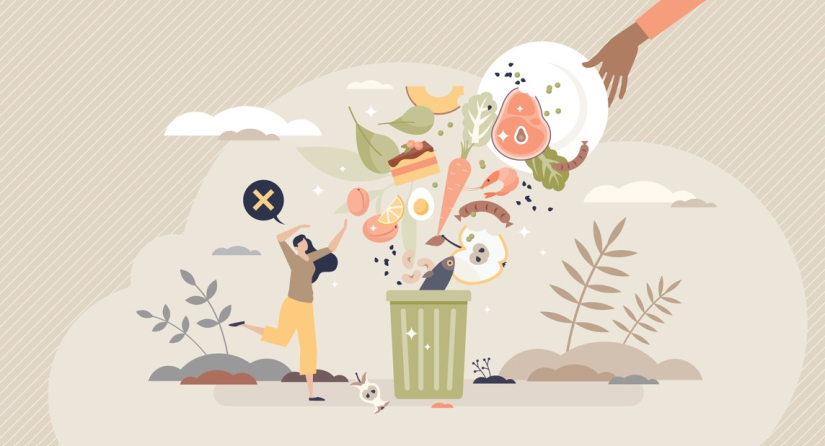
Tried and tested by the Veggie team
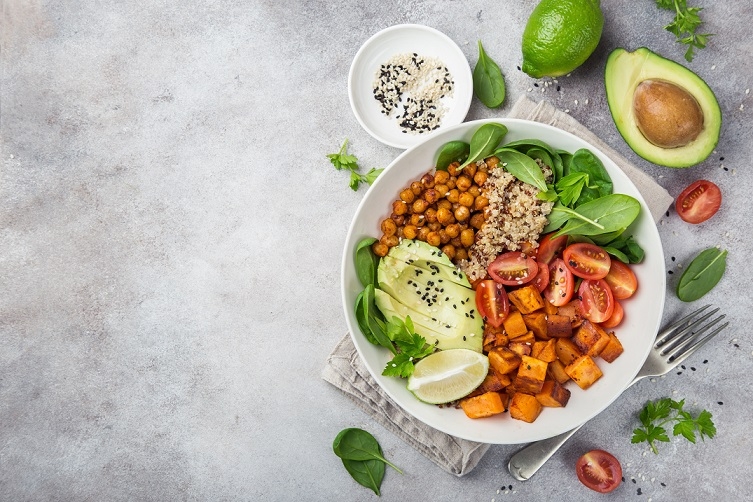
4 ingredients that will lift your spirits
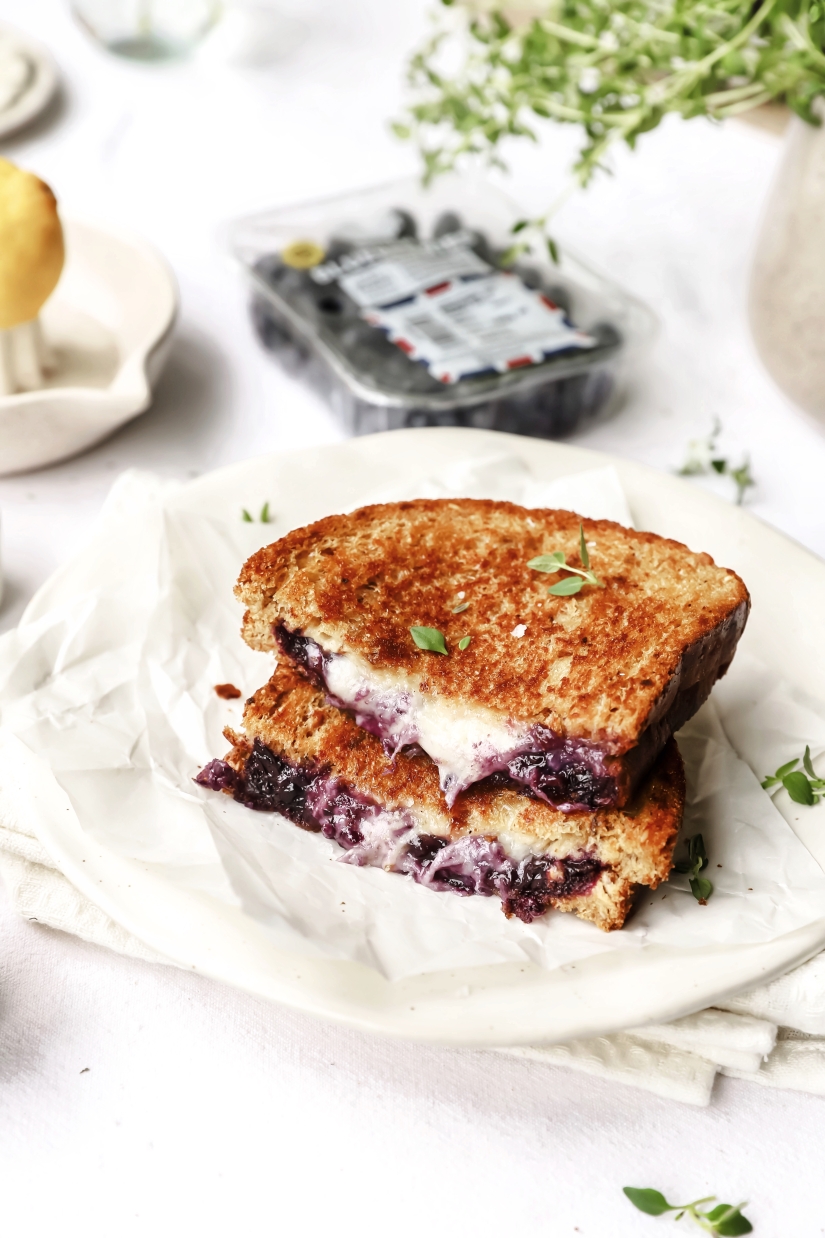
Fans of brie and cranberry look out, blueberry and cheese is the new toastie trend we're loving.
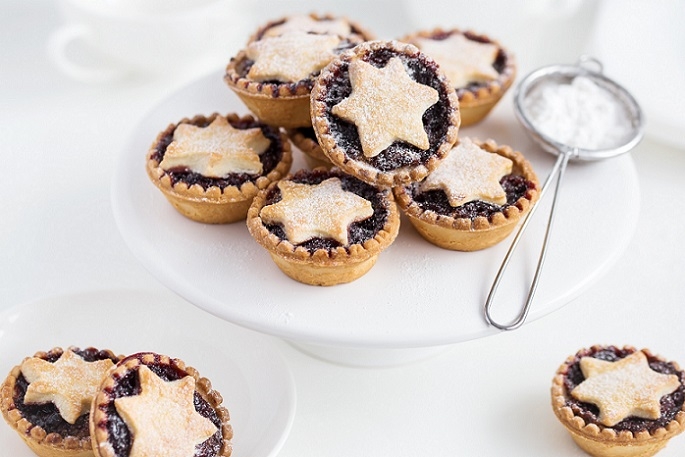
Simple swaps to help you stay on track




